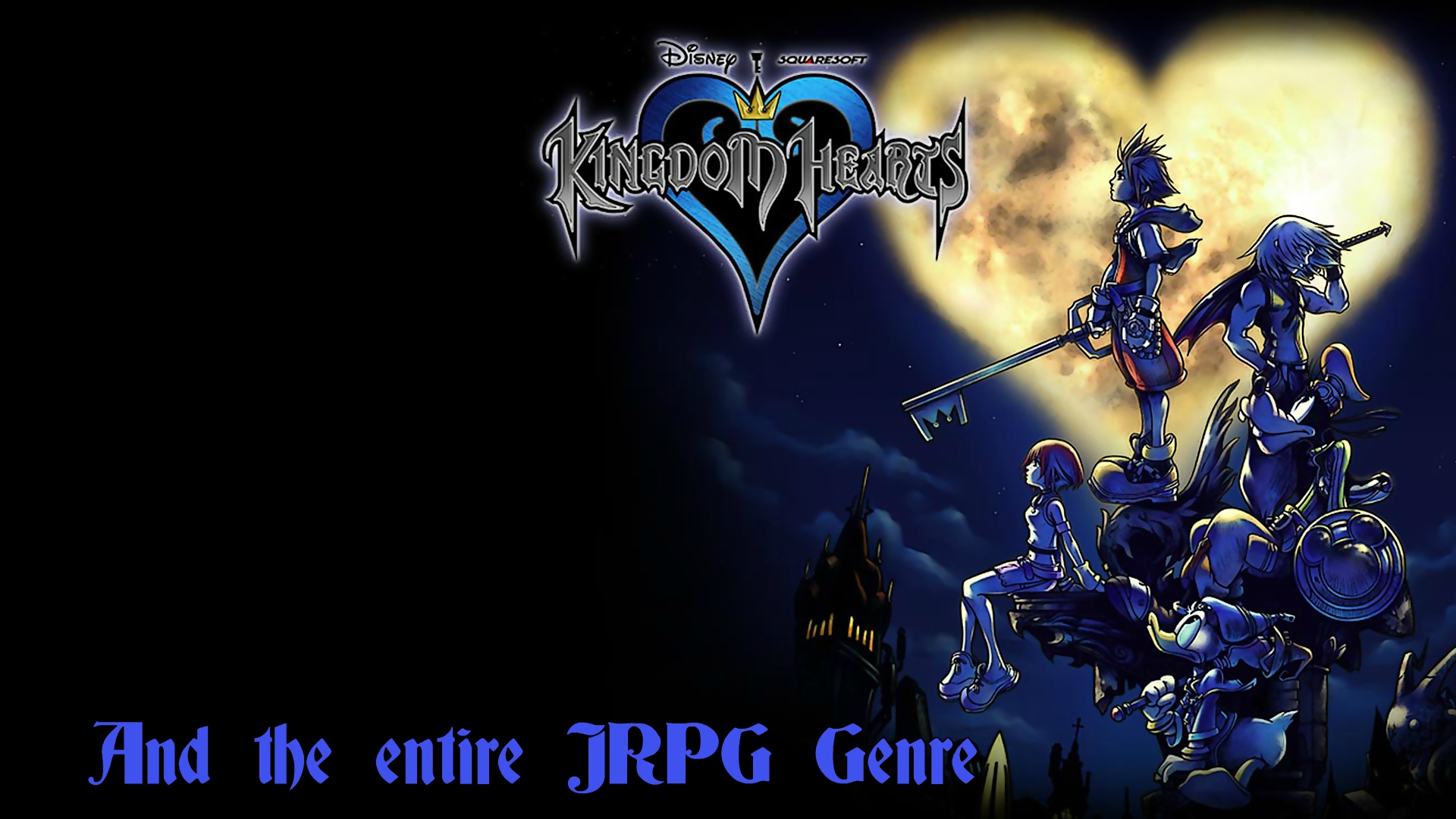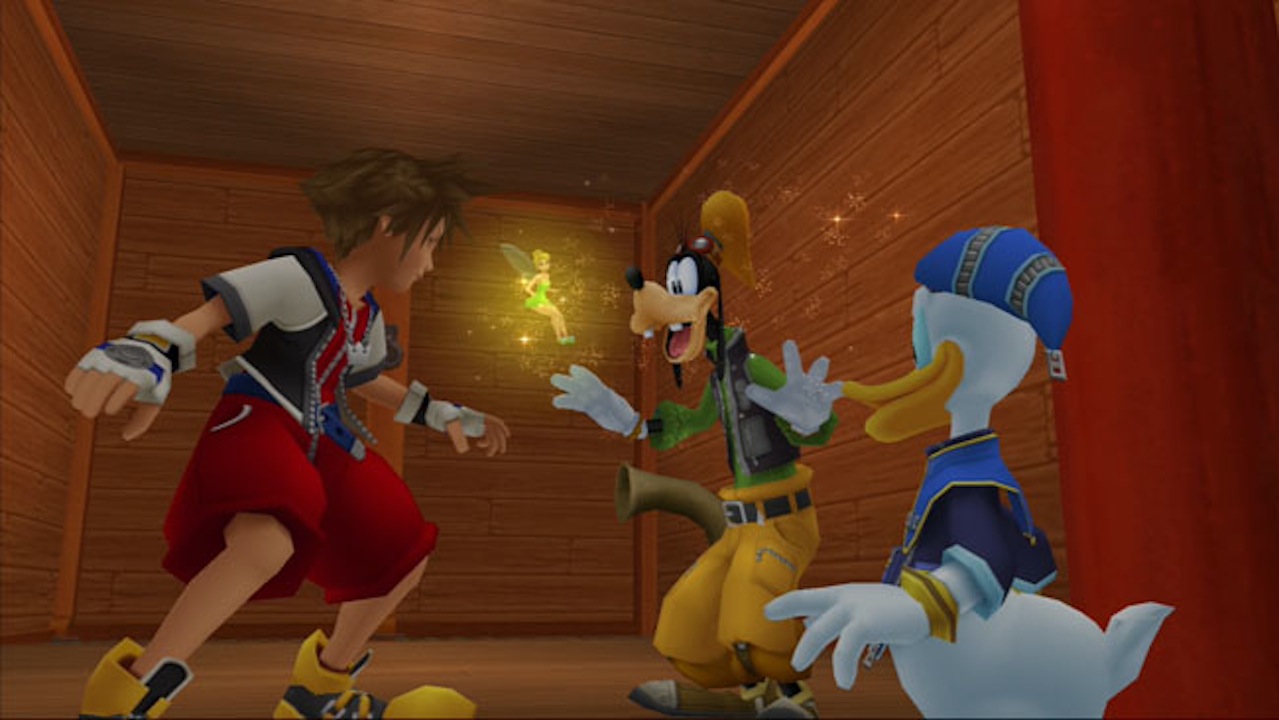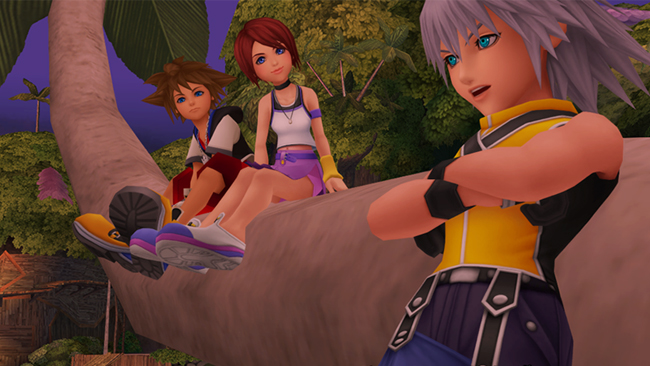Kingdom Hearts was a masterpiece of its time, that much is almost inarguable. In 2002, this game took the Playstation 2 by the horns and rode it all the way to the video game hall of fame. The debatable part is why it was so well received.
Of course having a bunch of Final Fantasy and Disney characters running around and saving the world would make a good game, but there was more to it than that. Kingdom Hearts didn’t just re-skin a typical RPG and call it a day. They took it even further. This next step they took is what I propose changed the JRPG genre from the days of yore, to what we have today.

That step was battle mechanics
There are obviously multiple things that made Kingdom Hearts stand out, but this one was the most long-lasting in the genre as a whole. It still had ‘attack’, ‘magic’, ‘summon’, etc. but it was an action-RPG to its core. Kingdom Hearts wasn’t the first game to try this, but it was the first to perfect the blending of action and JRPG elements. Games such as Star Ocean had characters the player could control around the battlefield, but it still felt like an RPG in the end. Which is fine, Star Ocean is a great series, but Kingdom Hearts had mainstream appeal, and the Disney features were only a part of that appeal.
Instead of controlling a party, Kingdom Hearts made the game center around controlling Sora, with his allies assisting with various AI routines that bolstered Sora’s efficiency. In layman’s terms, Sora was the player character, and allies were there to help him. Being described this way might make it sound more simplistic than it actually is, but in reality it just made the game more approachable while keeping the depth. Not only this, but it made the admittedly complex story of Kingdom Hearts more digestible by following the narrative through a singular character.
While Kingdom Hearts had mainstream appeal because of its approachability and the Disney aspects, it seemed like these new battle mechanics had a lasting effect on the industry as a whole. In fact, after Kingdom Hearts took the hearts of many, Square Enix released Final Fantasy 12, which included an action-based fighting style. Arguably, Kingdom Hearts did it better, but the point is that turn-based strategy in the mainstream JRPG market was forever changed after Kingdom Hearts.
Mainstream RPGs had been changed
Most mainstream RPGs after Kingdom Hearts didn’t follow the traditional turn-based strategy, and found different ways to infuse different mechanics into the games, if not outright changing RPG battles entirely. Many hardcore JRPG players lament the shift from turn-based strategy, but the majority had spoken in favor of the shift after being treated to Kingdom Hearts.
If Kingdom Hearts was a standard turn-based PlayStation 1 style JRPG, it would probably still be noted as a great premise, but would just be remembered as that time Disney and Square teamed up. Today, it’s remembered by millions as a game where you fought side-by-side with Donald and Goofy on a Galaxy-spanning adventure. They have the approachable, more action-oriented mechanics to thank for that. If you were to ask a non-gamer if they’ve ever played an RPG, there’s a big chance they’ve probably played Kingdom Hearts. It’s because those mechanics mixed with the premise lead to a game that was familiar yet new, with an easy to grasp control scheme.
In a way, the glass was shattered as the standard of JRPGs was forever changed. Going forward, developers seemed to have felt obligated to change the previous formula for their new games. Was this a good or a bad thing? It ultimately didn’t matter. Kingdom Hearts took the stage and everyone felt the need to follow suit, and they did.
Personally, I can appreciate the change, much like how Nintendo always throws a wild card with things like the Nintendo Switch. Kingdom Hearts wasn’t needed or even asked for, but the idea stuck its landing and the crowd responded. This forces innovation for those looking to emulate, which is ultimately what it did with the entire genre.
Plus, if someone really wants a traditional JRPG, there were tons in the PlayStation 1/2 era and still more in the indie space. While some cry out for tradition, others ask for choice, and that’s what Kingdom Hearts offered.









Published: Oct 23, 2016 01:58 pm